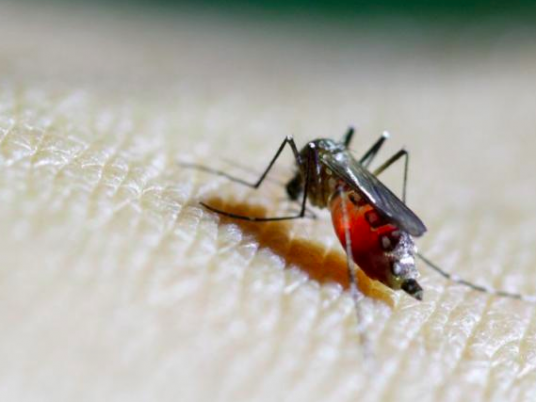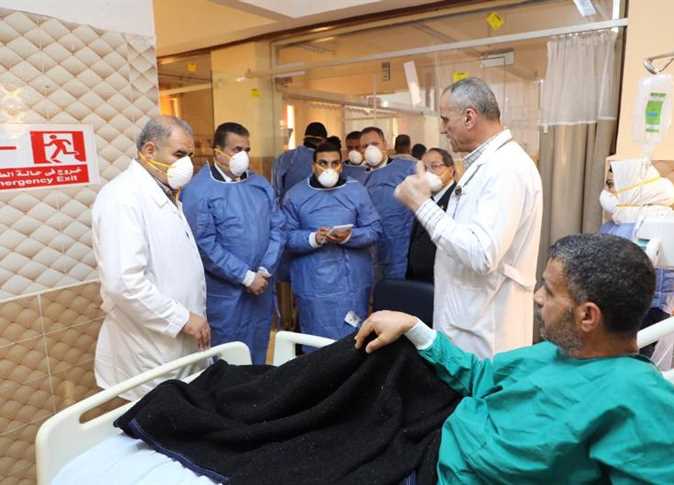Egypt recorded on Monday its 32nd official death from H1N1, also known as swine flu, marking a sharp spike in fatalities from the virus over the past month.
But despite the rising death toll, some public health professionals are criticizing what they say are unnecessary steps by the Ministry of Health that have frightened and confused Egyptians rather than offering concrete protection.
“We’ve been excessively scared from the beginning,” said Dr. Alaa Ghanaam, a former senior Ministry of Health official. “There’s a difference between raising awareness and spreading panic.”
The virus has been daily front-page news in Egypt for months, even while the actual death toll was far below the international average. In response to public fears, the government launched a proactive campaign that Ghanaam said ranged from excessive to genuinely bizarre.
From culling of hundreds of thousands of pigs earlier this year to delaying the start of schools for more than a month, the government’s plan, Ghanaam said, has been both panicked and panic-inducing.
Efforts to contact the Ministry of Health for comment were unsuccessful, but Minister Hatem el-Gabali openly predicted last month that the virus would begin spreading rapidly among schoolchildren in December and January.
“We put a plan on paper and then we just started reacting regardless of the original plan,” said Ghanaam, who heads the Right to Health program for the Egyptian Initiative for Personal Rights. “We always deal with crises in a random way. It’s all reactive.”
A plan to vaccinate all pilgrims departing for Hajj was haphazardly managed according to multiple reports. Ahmad Badreddeen, an architect who recently returned from the Hajj, said many pilgrims found ways to avoid getting the mandatory vaccination.
“People were skeptical because the vaccine was rushed out so quickly. They weren’t sure it was safe,” he said. “I heard from other [pilgrims] that at the health centers, the employees offered people the option of receiving the vaccine or just taking the certificate” declaring they had been vaccinated.
Others chose a different route. Badreddeen avoided taking the vaccine by getting a tourist visa to Riyadh rather than a formal Hajj visa, then traveling to Mecca on his own.
Even after the recent jump in fatalities, Egypt’s swine flu numbers remain below the international average. Lost amid the daily chatter, Ghanaam said, is the fact that the H1N1 virus is still primarily a threat to the elderly and those with pre-existing health conditions.
“I actually believe I caught it earlier this year. I think there’s a lot of people who had it,” he said. “I got sick. I took Panadol and slept a lot for a few days and then I was fine.”
Ghanaam partially blames the local media for sensationalist coverage that played on local fears from the avian flu outbreak several years ago without mentioning that the swine flu is far less deadly and in fact no more dangerous than standard influenza.
That’s where Ghanaam says the ministry should have given reassurances, backed by facts and statistics, spreading awareness of the true nature of the threat. Instead, he said, we’ve witnessed an “up and down” policy that seemed to be publicly re-evaluated on a daily basis.
“Will the schools open? Will the schools close? Will the Hajj be cancelled? It all makes people even more frightened,” he said. “You don’t feel there are calm people driving the car.”
At this point, the single biggest victim of H1N1 may be the Egyptian academic year. After losing a month of the front end of their year, thousands of students have lost further time due to frequent school closings whenever a student is diagnosed.
Badreddeen’s 10-year-old daughter and 6-year-old son both missed several weeks in November due to the closure of their schools.
“Of course it has affected their studies,” he said. “My daughter just told me that they cancelled a large portion of her syllabus because there isn’t enough time. She’s happy of course.”
Meanwhile Ghanaam laments the loss of what he calls “an opportunity on a golden platter,” for the ministry to launch a comprehensive upgrade of the local public health system.
“The virus’s danger is tied to the circumstances and quality of the public health system in each place,” he said. “The government should have spent its money and attention on improving the local health facilities.”




